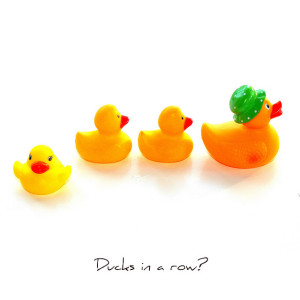My very first medical school interview was a doozie. I was caught totally off guard. The first thing the physician interviewer said to me was, “If you weren’t a Texas resident, we wouldn’t even be interviewing you.”
“Wow.” I thought. “What side of the bed did you get up on?” Being rather stunned, I didn’t know how to respond. I wish I could say I had a smart comeback. However, I think I just sat there and looked surprised.
My academic record, I had assumed (wrongly?), made me a good candidate for medical school. And this wasn’t Harvard.
Things got worse.
He asked me about my hobbies.
I told him I had always loved bicycling, that I used my bike for transportation, and was planning a 2,400 mile bike tour that summer.
He then proceeded to tell me about how his wife was hit by an 18-wheeler when she was riding a bicycle and died of head injuries.
Again. I didn’t really know what to say.
Later, I found out from my friend who attended this medical school that the physician’s wife of 20 plus years was alive and well.
There had been no bike accident.
Then I received a letter of recruitment from the school.
I threw it in the trash.
Why this interviewer did what he did, I will never know. Perhaps he was testing how well I could keep my composure. Maybe he didn’t like “Yankees.” Maybe he just didn’t like me. The interview felt terrible to me – how I actually came across I’m not sure about. Fortunately the next two interviews that day were fine, and I ended up at my first choice school, so it all worked out.
My take-away pearls from this experience are:
- Try to stay outwardly calm even if you feel thrown by a question. Take a deep breath to compose yourself.
- Even if you think the interview is going badly, you could be doing fine.
- If you have a negative impression of the environment based on how you are treated, this is good information to consider.
- A bad interview can always be used as a valuable learning experience.
Here are a few real-life examples of things NOT to do that were done by interviewees, according to CareerBuilder.com’s annual surveys from 2008 and 2013.
- Interviewee emptied the employer’s candy dish into her pocket.
- Candidate said he didn’t like to get up early and didn’t like to read.
- Candidate answered cell phone and asked the interviewer to leave her own office because it was a “private” conversation.
- The applicant smelled his armpits on the way to the interview room.
- During a phone interview the candidate flushed the toilet while talking to the hiring manager.
- Applicant told the interviewer he wouldn’t be able to stay with the job long because he thought he might get an inheritance if his uncle died, and his uncle wasn’t “looking too good.”
While these interview gaffes are hard to believe, the reality is that when we’re nervous and ill-prepared, we may say and do things we wouldn’t ordinarily. Since it takes time to plan well for an interview, from assembling the proper attire to researching the company and interviewers, it’s advantageous to plan ahead and get your interview ducks in a row.
At the 2013 HIMSS conference, I had the pleasure of meeting Bonnie Segal, a healthcare IT recruiter at Witt/Kieffer. Ms. Segal is very familiar with physician candidates seeking non-clinical positions. Last year she spoke at the SEAK Non-Clinical Career Conference for physicians, sharing sage advice on getting hired. In a recent blog on interviewing, Ms. Segal offered the following recommendations:
- Research the company and executives thoroughly prior to your meeting.
- If local, drive by and even take a tour of the campus and buildings. If you’re coming from a distance, arrive early to get the lay of the land.
- First impressions still mean a lot. Invest in an expensive formal business suit, preferably black, gray or navy – and being well-groomed is always important.
- Practice your answers to key questions in front of a mirror; keep your answers to less than two minutes.
- Bring only extra copies of your resumes to the interview, not presentations, strategic plans, etc. unless asked by the hiring manager.
- Bring a leather briefcase or portfolio and turn off and store your cell phone or tablet.
Even if you don’t have an interview on the horizon, you can prepare in advance by working through some of the commonly asked questions. This groundwork will increase your confidence and likelihood of success when the important time comes.
Some typical interview questions:
1. Tell me about yourself.
2. Why should we hire you?
3. What salary are you expecting for this position?
4. Why do you want to leave your current job?
5. What would your current/previous boss say about you?
6. What do you know about our company?
7. What are your strengths? Your weaknesses?
8. Where do you see yourself in 5 years?
9. What kind of newspapers and magazines do you read?
10. What questions do you have?
You can see a list of 100 potential interview questions on monster.com
Once you have an interview scheduled, if you have practiced answering the standard questions, you can focus on researching the company and key individuals, as well as anticipating more specific questions. Know the job description inside and out. Be ready to demonstrate with short vignettes from your experience how you are the best candidate for the position.
At the end of the day, it doesn’t matter how many awards you have won, how many papers you published, or how fast you can remove a gall bladder, the company wants to know three things about you:
1. Are you going to be able to do the job well?
2. Are you going to fit into the culture?
3. Can they afford you?
Good luck to all of you who are out there looking for something new. Yes, it takes a lot of time and persistence, but don’t give up. There is something out there just right for you.
Latest Posts
Find what you're looking for:
Popular Categories:
Career Change | Career Enhancement | Job Search | Personal Development























